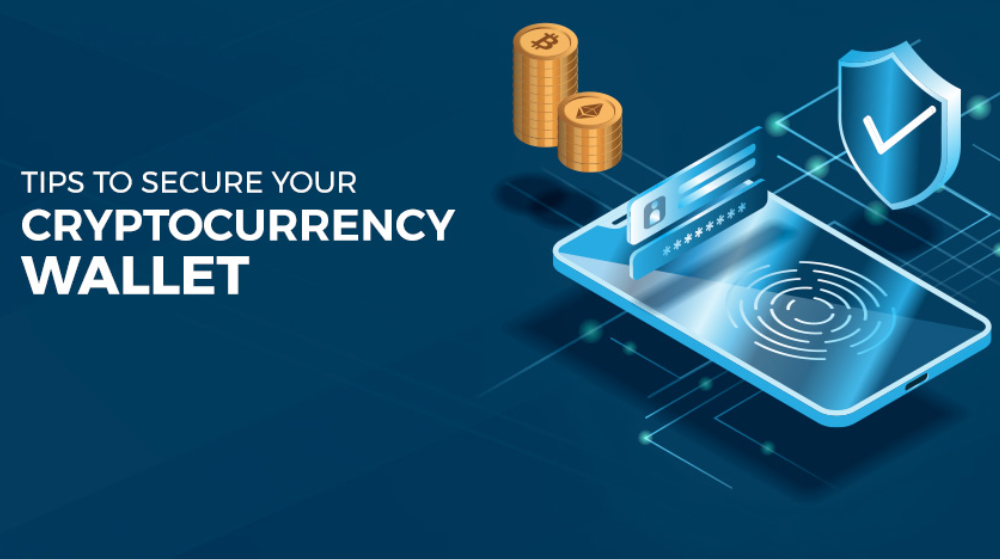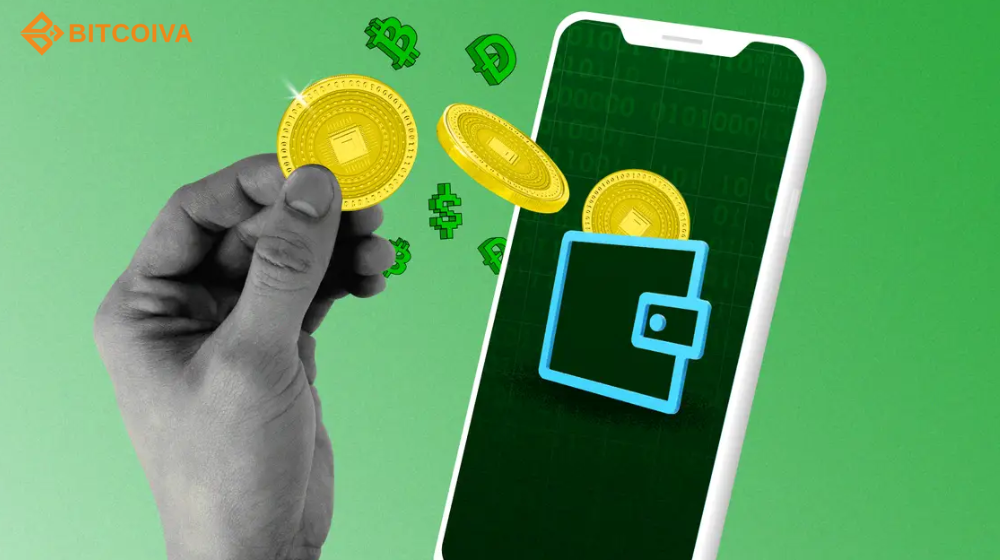We already know the cryptocurrency market is highly volatile, and the popularity and rise in crypto prices mean that hackers will have a sharp eye on these digital currencies and want to profit from these valuable digital assets on crypto app India. According to crypto industry experts, as digital currencies grow in value and become more common every day, hackers will keep coming up with new ways to hack them.
In this blog, we have worked on bringing out the eleven best tips to secure your crypto wallet from cyber-attacks.
What is Crypto Wallet or a Digital wallet?
A digital or cryptocurrency wallet is a service, app, or physical wallet like a USB stick. It stores private and public keys, which keeps your cryptocurrency protected. These keys are strings of alphanumeric that allow you to encrypt & decrypt while doing crypto transactions.
1. Choose Your Crypto Wallet Wisely
Online wallets are also called hot wallets. These are becoming increasingly popular and drawing cybercriminals’ attention. Hence, keeping your crypto assets in cold wallets or offline would be the best approach. However, you can have small digital money in your online wallet. The cold wallet must be kept in a safe place, like a safe or safety deposit box. And, to keep your wallets safe, you should have separate private and public keys and secure them with strong passwords.
2. Keep Changing Your Passwords Regularly Or Use a Password Manager
Looking at today’s environment, you can expect that your credentials will eventually be compromised. Therefore, creating a strong password, keeping it safe, and changing it often are ways to keep your password secure.
Try to avoid passwords with any personal information on the crypto exchange India. It is safer to keep passwords in a password manager than on your browser. Finally, switch your password every six months.
3. Always Have 2-Factor Authentication (2FA) Active
Getting a cryptocurrency India wallet with two-factor Authentication (2FA) is vital. Moreover, it adds a layer of security for your funds and assets by demanding authentication before indulging in account activities like signing in, withdrawing, or sending funds. This will always ask for your 2FA code, so you can immediately catch if someone is trying to access your wallet.
4. Make Use of the Multi-Signature Feature
Getting a multi-sig wallet is one of the powerful ways to keep your money safe if you have a lot of virtual currency. This feature stops unauthorized users from accessing the wallet without their digital signatures, and some crypto wallet companies support them.
Hackers won’t be able to access your wallet and risk your crypto holdings illegally without the support of these people. Enable this feature if you haven’t already.
5. Have a Regular Backup of Your Wallet
You can back up your wallet’s data with some wallet providers. By creating a backup of your wallet, you can access your data in case of software and hardware failures. Backup helps you quickly recover your money and data if lost or stolen. Deploy multiple backup devices for easy account recovery.
6. Safely Keep your Seed Phrase in Place
A wallet provider like MetaMask will develop a set of 12 to 24 random phrases as a “seed phrase.” You need to input this seed phrase in the same order you received when you signed up.
Unfortunately, there isn’t a legit “forgot your password” option. Therefore, with no exception, if you misplace your seed phrase, you lose access to your wallet. So keep the seed phrase offline in a secure place.
7. Private key Should be Kept Private
Your private key is similar to your bank PIN. You better keep this safe because it holds the key to your hard-earned earnings.
Keeping your private keys offline is one approach to protect your wallet and crypto funds. You can either use cold storage devices that you can easily access offline or write them down on paper and store them safely to prevent damage.
8. Never Click on Suspicious Links
Cybercriminals often use tricky links to set their traps. They will try to catch the target’s attention and convince them to click on odd links that take them to suspicious websites where they could be used to steal sensitive information and harm electronic devices.
Try to avoid clicking on links that are unknown to you because doing so could risk your crypto wallet.
9. Use a Reliable, Secure Internet Connection
Working from home is a gift. After the pandemic, companies have allowed employees to work remotely by having their favorite cup of coffee at a nearby cafe. But here comes the risk: public WiFi is unsafe and certainly not an option while making an online transaction from your crypto bank account or wallet. Always use a reliable VPN when connected to public networks.
10. Use Updated Antivirus Programs
Several antivirus programs provide unique protection features against crypto hacking and phishing attempts. These programs scan all incoming emails and flag potential phishing attacks to safeguard your wallets.
Make sure you buy antivirus software of licensed versions and update them with the latest database.
11. Always Double-Check the Recipients Wallet Address
The wallet address identifies a sender or receiver of cryptocurrency. This address is a string of letters, numbers, and special characters that allow crypto transactions. Always double-check the recipient ID before sending the cryptocurrency to another wallet in cryptocurrency exchange India.
Malicious software can paste and edit the wrong wallet address belonging to a hacker. Once the transaction is made, it can never be changed on crypto currency trading platform as it uses a blockchain network. Therefore, it’s more reasonable to be safe than sorry.
Wrapping Up:
Maintaining the security of your cryptocurrency may seem hectic work, but doing so is necessary to protect your funds from hackers. If you can easily log in and access your crypto wallet, remember that it is easier for the hacker too. Since any online transaction can be susceptible, executing the tips mentioned above will help you secure your crypto wallet and safeguard your regular online interactions.
Visit us at: www.bitcoiva.com


